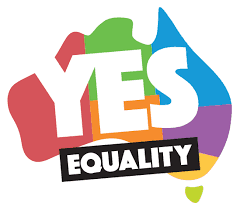The Latest Trends In Wedding Cinematography
So what’s the difference between a cinematographer and videographer?
A videographer’s main goal is to capture the entirety of your wedding day in a chronological, doumentary- style video. Cameras are often hand- held or placed on a tripod for steadier shots, and music tends to heavily support the video. Both filming and post- production editing generally takes less time,and as a result, a videographer’s services will cost less than a cinematographer’s.
Cinematography, on the other hand, should be seen as a separate craft where a high level of technical filmmaking and storytelling techniques meet. A cinematographer will be trained in the skill of professional filmmaking and approach your video as such- as though it is a professional movie. Here a specific ‘story’ takes precedence over simply a documentation of your wedding day- often the development of your relationship is recreated and captured by shooting at venues unrelated to your strict wedding day. Professional accessories such as Steadicams, sliders, professional lighting and audio equiptment are used, and multiple cameras are often used simultaneously (to get a great split screen effect where different events are caputred at the same moment).
What do you think is going to be the “next big thing” in wedding cinematography?
3D wedding cinematography has been explored since 2010, and although it is absolutely feasible at this piont, it’s yet to take off in a significant way. Audiences haven’t fully embraced this technology, and currently the imagery doesn’t have the cinematic feel that people currently love about films. It’s the storytelling nature of our films that people really love.
There is a growing trend towards capturing an broader ‘story’ in the same vein that cinematographers are interested in, where it’s not only the wedding being filmed, but the weeks leading up to the event: the dress fittings, final dance lessons, family dinners etc., and using these elements to create a flim in which the couple and their families are the centre. This encourages audiences to look at the wedding film as much more than simple, run of the mill ‘wedding film’.
How far has wedding video come in the last 3 years?
It has now become much more of a ‘must have’ service than it used to be. This new rise of a cinematographic approach has seen it become as important as a professional photographer. There are now dedicated studios that specialise in wedding film making and the demand is stronger than ever.
What are your tips for choosing a wedding cinematographer?
Firstly, work as much from referral as you can. As with many services, the top quality people always are heavily in demand from word of mouth. Also go and visit the studio in person. Meet the team and get a feel for how they operate. Ask to see some examples of real life weddings- a top studio should have many different films to show, and not just the showcase specific shoots.
If couples really want to indulge in cutting edge/luxury cinematography, what types of services are available to them?
Some of the more luxurious options include pre shooting events leading up to a wedding (as explained previously, Same Day Edits or exotic options like helicams.
Same Day edits are an exciting new option for brides who wish to have an unforgettable experience for their guests at their wedding reception. Moments filmed on the wedding day are edited over a short time period (usually just several hours) and screened to the delight of friends and family. Sometimes pre wedding footage is combined with wedding day scenes to create a more complete film of the wedding lead-up.
Similarly, specialist remote controlled helicams are being increasingly used. This “eye-in-the-skye” enable the couples to have a shot from above to give that extra production value. Specialist tools like this help take the films to the next level.
Whatever form of capturing you big day you choose, it is absolutely crucial that you find an individual or company that strives to make you as happy with their work as they can. Good videographers/ cinematographers get their fulfilment from the positive feedback from the couples’ themselves, and pride in their work.
Good luck putting together your wedding day video!
Big thanks to Abraham from Untitled Films for his time & knowledge






